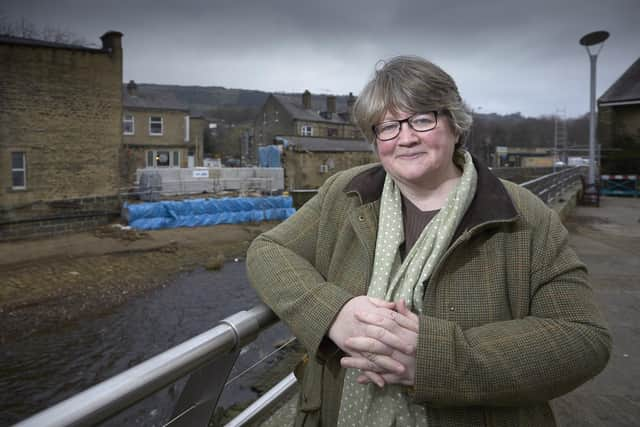The government has fallen victim to really bad timing
and live on Freeview channel 276
We all look back with rose-tinted spectacles, remembering when people seemed to have more time for each other, there was seemingly less pressure in life and no social media.
In reality that rose tinting gives us a false image and the reality of times gone by was rarely as good as it looked.
Advertisement
Advertisement
A safe bet is that in picking a decade to return to few would opt for the 1970s. But as inflation roars ever louder, the economy shrinks and strikes add up it is hard to escape the conclusion that we are back in the same situation.


Then it was a Labour government out of steam and out of ideas; the UK economy was in a dire state and the International Monetary Find was warning of the need for action. Strikes across the economy led to what was dubbed a winter of discontent.
Today, while the strike days piling up are fewer, we are back to that Shakespearean winter of disappearing services.
This time it is a Conservative government that seems to be out of ideas and struggling towards a 2024 election with a sense of the inevitable, as more of its once high profile MPs announce they will not stand.
Advertisement
Advertisement
It is ironic that back in the 1970s the UK had just joined the EU; today it has left Europe, but the Brexit bounce promised from escaping control from Brussels has not happened.
The UK is facing the worst recession of any developed country, and while Europe is traditionally the home of damaging strikes the UK is topping that league table too.
It was telling this week that the National Farmers Union in England grabbed headlines by warning that the government was sleep-walking its way to a food security crisis.
It painted a picture of rising costs on farms, which despite food price inflation are not being fully passed on to consumers.
Advertisement
Advertisement
It also warned that restrictions on labour availability after Brexit is harming the farming and food industries.
Ironically Brexit was supposed to be about stronger borders and an end to free movement, but in reality the government has managed to keep out theworkers it needs while facing uncontrolled levels of illegal migration.
Brexit is undoubtedly a factor in the mix of problems. But the government has been the victim of bad timing, coupled with a lack of ambition to make Brexit deliver a different future. It could never have predicted the war in Ukraine and the financial and political fallout.
In an uncertain world of massive political and trade blocs, now is not a good time to be trying to go it alone, but that is the only policy in town. At the same time the government has not taken advantage of the freedoms promised with Brexit.
Advertisement
Advertisement
It has not delivered any policies that are radically different to those of the EU. It has not controlled its borders, other than to block much needed European labour.
There has been no explosion of new trade deals, other than bad deals with Australia and New Zealand. For industry a deal with Japan has proved less effective than the deal UK traders already enjoyed as an EU member state.
The issue with Brexit is that the UK government, with its ambition to be as green if not more green than Europe, has not been able to exploit the independence to be globally competitive in farming and food. It is sticking to the same policies as Europe, but without the guaranteed income farmers have through the CAP. It is taking farming for granted, just as the NFU said.
The DEFRA minister, Therese Coffey, confirmed this week there would be no change of approach and no aid for farmers to help with input costs.
Advertisement
Advertisement
This contrasts with the position in the EU, where aid with those costs is being considered in a bid to bolster food security.
The Westminster approach ignores the very real potential British agriculture has to feed the nation and export, if only farmers were given the freedom to respond to that challenge without beingwrapped in red tape.
This failure is a betrayal for those many farmers who backed Brexit for a more successful future. Instead they now see a government that neither cares or understands what food security is all about.